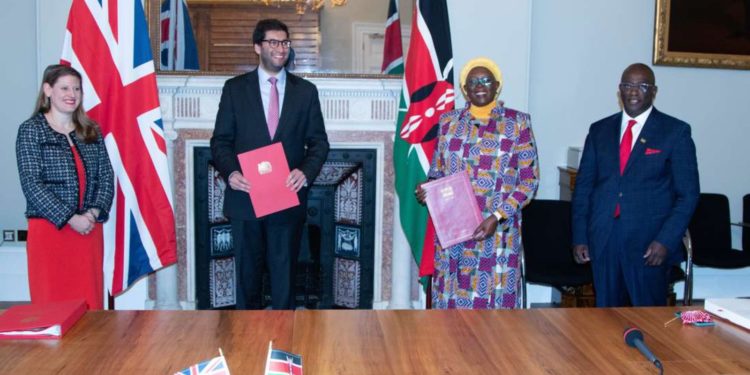Several East African Community (EAC) member states have begun the process to join the Economic Partnership Agreement (EPA) between Kenya and the United Kingdom. This move is poised to align the region’s trade policies and enhance tariff harmonization across the bloc.
The Kenya-UK trade agreement, originally signed on December 8, 2020, allows for duty-free and quota-free access for Kenyan goods into the UK market. In exchange, Kenya agreed to gradually reduce tariffs on imports from the UK, though it maintained protective measures on certain sensitive items. The deal was put in place following the UK’s departure from the European Union, ensuring that Kenyan exports, particularly fresh produce, continue to benefit from favorable market access.
Trade Principal Secretary Alfred K’Ombudo confirmed on Tuesday that the EAC has tasked its Secretary-General with exploring the possibility of expanding the EPA to include all member states. The goal is to establish a unified tariff structure for UK goods across the entire region, which comprises Kenya, Rwanda, Tanzania, Uganda, Burundi, the Democratic Republic of Congo (DRC), Somalia, and South Sudan.
“The EAC has initiated a discussion through the Sectoral Council for Trade, Investments, Finance, and Industry to examine the potential for an EAC-wide Economic Partnership Agreement with the UK,” Mr. K’Ombudo stated. He noted that this initiative aims to synchronize Kenya’s tariff policies with those of its EAC partners, fostering greater regional trade cooperation.
Initially, Kenya’s individual negotiation of the EPA raised concerns within the EAC, as it diverged from the region’s Common External Tariff (CET). However, Article 143 of the UK-Kenya EPA allows for other EAC nations to join the agreement, facilitating a more cohesive approach. The recent push by the EAC to negotiate as a bloc is intended to address these concerns and strengthen the region’s collective bargaining power.
Kenya has already implemented a 25% duty on UK wines, gin, and whiskies under the EPA, differing from the 35% CET rate that other EAC countries apply. The UK’s response to this taxation highlights the importance of harmonized tariffs, which the proposed EAC-wide agreement seeks to achieve.
















